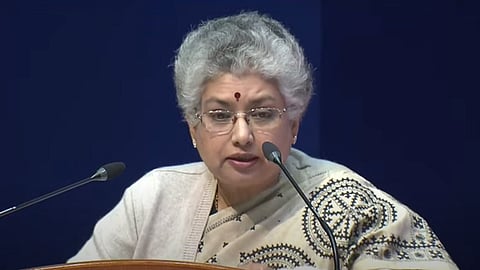
- News
- Columns
- Interviews
- Law Firms
- Apprentice Lawyer
- Legal Jobs
- हिंदी
- ಕನ್ನಡ

Self-regulation by electronic media has proved to be ineffective and a regulatory authority is needed for the same, Supreme Court judge Justice BV Nagarathna said on Saturday.